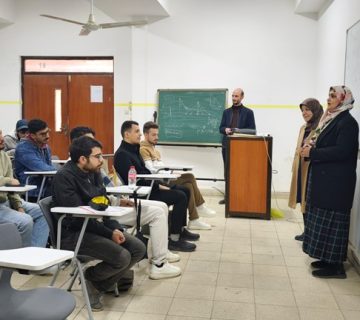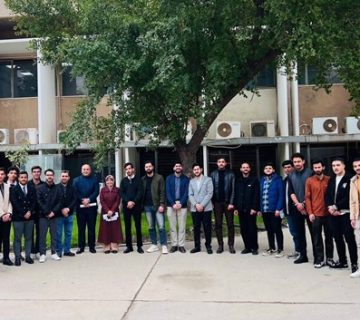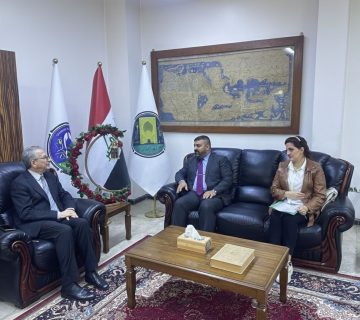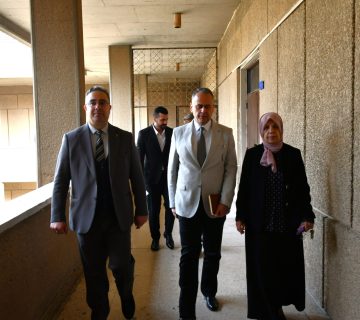The College of Engineering at the University of Baghdad organized a symposium titled “Kids and Digital Time: Improving and Promoting Health in the Digital World,” sponsored by the Dean of the College of Engineering. The event was held on Monday, April 8, 2024, in the department’s discussion room, and was led by Lecturer Islam Muhammad Ahmed. Attendees included the department’s head, Assistant Prof. Dr. Firas Ali Saber, and several faculty members.
The symposium addressed the escalating use of smart devices among children worldwide, with many spending a significant portion of their time immersed in virtual environments. It highlighted the reasons behind children’s attraction to these devices, such as the need for communication and the creation of safe virtual spaces for self-expression. While acknowledging the benefits of digital devices in fostering creativity, it also underscored the associated risks, including adverse effects on physical health and exposure to potentially harmful content and relationships.
The symposium aimed to emphasize the importance of collaboration between parents and educational institutions in mitigating the risks associated with smart devices and ensuring children’s safe and constructive engagement with technology. Several recommendations emerged from the discussions, including:
1. Establishing daily time limits for children’s device usage, with the recommended duration being two hours per day for children aged 5 to 17.
2. Installing educational and intellectually stimulating applications on children’s devices.
3. Engaging in dialogue with children to explain the reasons behind restrictions on certain applications while encouraging the use of approved ones.
4. Implementing parental control features on children’s devices.
5. Encouraging children to participate in physical activities and outdoor games.
6. Setting positive examples for children by demonstrating responsible device usage.
These recommendations aim to promote a balanced approach to children’s digital engagement, fostering their well-being and development in the digital age.








